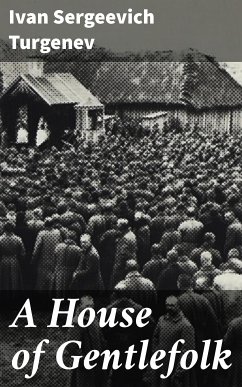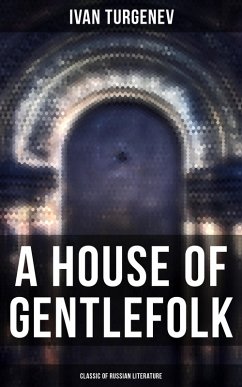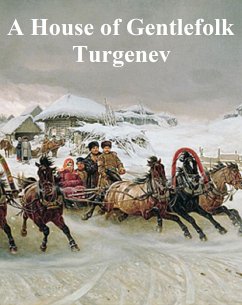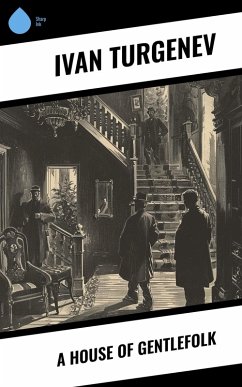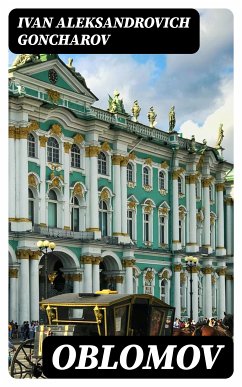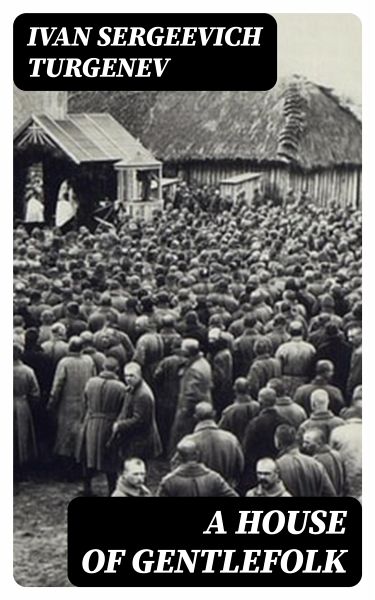
A House of Gentlefolk (eBook, ePUB)
Versandkostenfrei!
Sofort per Download lieferbar
0,49 €
inkl. MwSt.
Weitere Ausgaben:

PAYBACK Punkte
0 °P sammeln!
In "A House of Gentlefolk," Turgenev masterfully weaves a rich tapestry of 19th-century Russian society, exploring themes of love, social class, and the generational divide through the lens of a fading noble family. The novel employs a delicate lyrical style, characterized by its nuanced characterizations and insightful psychological depth, reflecting Turgenev's admiration for the naturalistic approach. Set against the backdrop of a rapidly changing Russia, this work poignantly captures the tensions between the aristocracy and the emerging intelligentsia, highlighting the characters' complex e...
In "A House of Gentlefolk," Turgenev masterfully weaves a rich tapestry of 19th-century Russian society, exploring themes of love, social class, and the generational divide through the lens of a fading noble family. The novel employs a delicate lyrical style, characterized by its nuanced characterizations and insightful psychological depth, reflecting Turgenev's admiration for the naturalistic approach. Set against the backdrop of a rapidly changing Russia, this work poignantly captures the tensions between the aristocracy and the emerging intelligentsia, highlighting the characters' complex emotions as they navigate their disillusionment and aspirations. Ivan Sergeevich Turgenev, a pivotal figure in Russian literature, was deeply influenced by his own upbringing in the privileged yet decaying nobility. His experiences as a landowner and his interactions with the Russian intelligentsia profoundly shaped his worldview, prompting him to articulate the struggles of a society in transition. Turgenev's own contemplative nature and Western exposure, especially to Romanticism, inform the meditative quality of this novel, embodying his sense of longing and societal critique. This classic novel is highly recommended for readers seeking an intimate exploration of the dynamics of love and societal change. Turgenev's elegant prose and sharp observations invite readers to not only immerse themselves in the lives of his characters but also reflect on the broader implications of their choices. "A House of Gentlefolk" remains a significant work, resonating with contemporary discussions on class, identity, and the human experience.
Dieser Download kann aus rechtlichen Gründen nur mit Rechnungsadresse in A, B, BG, CY, CZ, D, DK, EW, FIN, F, GR, H, IRL, I, LT, L, LR, M, NL, PL, P, R, S, SLO, SK ausgeliefert werden.




